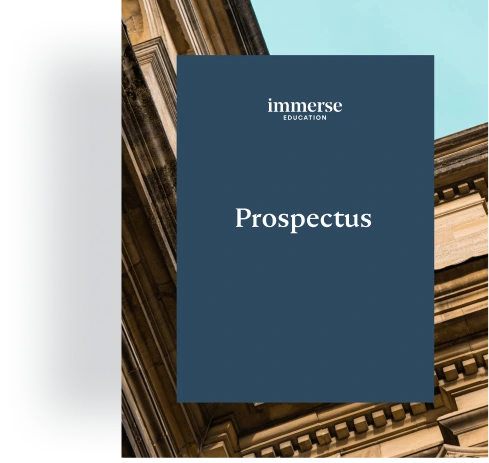Choosing a University Course
So, you know what you want to study at university, but the problem is: how do you choose a university course from the hundreds of options out there? It’s a tough task. The solution is learning how to evaluate course content and the curriculum, as well as the teaching styles and tools combined with a few decision-making strategies. This will set you on the right track.
In this guide, we’ll walk you through the vital course elements to consider, from core subjects and electives, or placements and optional modules, to teaching and assessment methods. We’ll look at how to assess the balance of theoretical and practical content and how to find the answers to all your questions.
Specialisations and Electives
Often, universities use the same course names, but each course can have a different format, electives or modules, content, and teaching styles. Some degrees offer joint honours. There are majors that are multidisciplinary, but also courses that specialise in one single subject area.

Your first task is to evaluate the breadth and depth of course content. Start with the core subject content. Does it provide the theoretical content and background required for your career choice?
Then, the available electives. Are the electives up to date for your industry? Combined with core subjects, does this provide the range of knowledge you need for your career? Can you choose electives that match closely with your chosen career? How flexible are the choices, and how widely will your studies range?
These elements are important to consider when choosing a university course. Check that it fits with your career path and that the course is interesting, engaging, and motivating.
The importance of specialisations for career advancement
A specialisation can either support your chosen career path or offer a new opportunity for the future. A specialised degree has the potential to result in a higher salary later in a niche field, especially where there is high demand. Or, it can offer greater career mobility. It’s essential to choose a specialisation carefully, as it should be future-relevant and a route where you feel you will excel.
In contrast, if you are still determining your future career path, a broader course specialisation may provide flexibility for you to change jobs or focus on other areas, even later in your career.
Internships and Study Abroad Programs
Courses that offer internships, placements, or international exchange programs can also help you to achieve a very focused career path. For example, University College London has a Global Internships Program. The university’s “Inspirations” page describes a BA History, Politics, and Economics student’s opportunity to intern with the United Nations as well as the experiences of other students.
If you are studying a language or region’s history, an opportunity to study in the relevant country will be invaluable for your future career.
Ready to take your learning further?
Join Succeed, our free platform for ambitious students aged 13-18 to get future-ready. Access expert-led masterclasses, interactive
goal-setting tools, and exclusive content.
Teaching Styles and Assessment Methods
How a course is taught and assessed is very relevant to how you will perform in your studies. For example, if you feel you will struggle with many long lectures, consider courses with seminar-based and practical learning experiences.
The same is true for assessments. If you find exams challenging, look for courses where coursework and continuous assessments have a greater weight.
Lecture-based
Lectures will have a single tutor and many students. The tutor may provide a handout and use a board and audio and visual support.
Seminar-based
Seminars are less formal and usually have smaller groups. There are typically opportunities to ask questions, contribute, and debate ideas and themes.
Practical learning
Practical learning will depend on your field of study. It could be lab- or computer-based, performance-based, or involve attending clinical practice or fieldwork.
Blended and online learning
Some universities have adopted blended and online learning opportunities. Online learning can be pre-recorded, consist of live sessions, or involve digital experiences.
Choosing a University Course Based on Content and Curriculum
A course syllabus can usually be found, in full, on a university’s website. Reviewing what you will learn in detail is critical to ensure it fits your career path and interests. A syllabus can also be an opportunity to assess a course’s balance between theory and practical skills learning.
The syllabus is an opportunity for you to check if the course is up to date with industry trends and the latest technology and research. The current pace of technological change is driving universities to update curriculums constantly, but it’s essential to ensure your course is future-relevant.
Another useful way to understand course content is to check the reading list for the course and explore some of the titles. You could visit a library or a bookshop to browse through the books or look for summaries of the books and content information online. If you are already committed to a course, this is also a great way to start getting ahead in your studies!
Decision-Making Strategies
Reaching out to tutors
Tutors and professors often don’t mind answering specific course questions, and you may find a tutor’s email address on a university’s website. Reaching out is a great way to start interacting with a future tutor and to learn course specifics.
Course alumni
One way to discover where a course or specialisation might take you in the future is to search LinkedIn for course alumni and see where and in which fields past students gained employment. The reverse is also true. If you aspire to work for a particular company or in a very niche role, you can look for people in the role and check what course they studied.
University league tables
League tables can be a detailed source of information on courses, student satisfaction, and graduate prospects and even tell you how much a university invests in course development.
For example, The Complete University Guide has detailed tables of course summaries, modules, entry requirements, and ratings for each course.
Here are some other university-ranking publications to look for:
- QS World University Rankings**
- Times Higher Education World University Rankings**
- Times Higher Education “Table of Tables”
- Academic Ranking of World Universities**
- Other publications by The Times, The Guardian, The Daily Telegraph, or Financial Times, as available
**International rankings
By searching online, you can find university rankings, genuine student reviews, and even articles comparing some of your ideal universities and courses side-by-side.
Open days and taster sessions
Every university will have open days and even taster sessions where you can explore the course faculty, meet tutors, ask questions, and learn much more. It’s critical to take advantage of these opportunities and prepare well in advance with online and other research to ensure you understand your future course and the learning experience. This will prepare you to be able to gain deeper insights from open days and experiences.
Take a summer school to explore a course fit
Immerse Education has over 100 residential programmes and many online programmes available. These opportunities, including summer schools, provide an unparalleled opportunity to experience course content and a university setting, so you know you are on the right path.
Closing Thoughts
Your methods of exploring a university’s course offering will depend on your most important decision factors. If you’re after a particular lifestyle, prioritise chatting to alumni. For those who consider the course as the most important decision factor, then rest assured, there are ways to gain useful insights over the internet, in person, and through conversation.
If you want to see if the subject and teaching style suit your interests and learning style, a summer school or university-style research project might be the way forward.
There’s no single ‘correct’ way of choosing a university course, so dive in and explore in a way that suits you!




















